Indian Foreign Policy in 21st Century
The following remarks were given by Ambassador Rajiv Bhatia, Distinguished Fellow, Foreign Policy Studies, Gateway House as Distinguished Guest Lecturer at IIM Tiruchirappalli on February 3, 2019
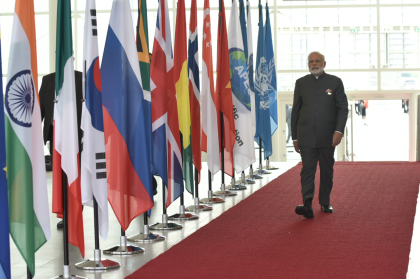 Courtesy: MEA/Flickr
Courtesy: MEA/Flickr
The following remarks were given by Ambassador Rajiv Bhatia, Distinguished Fellow, Foreign Policy Studies, Gateway House as Distinguished Guest Lecturer at IIM Tiruchirappalli on February 3, 2019
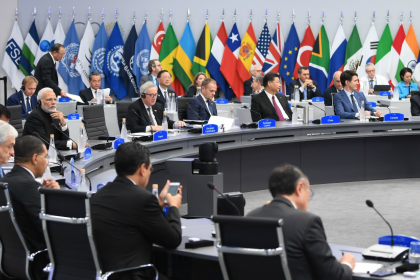 Courtesy: MEA Flickr
Courtesy: MEA Flickr
Hosting the G20 Presidency in 2022 is a welcome challenge and a fitting aspiration for India. Preparations must begin now, with an immediate upgradation of domestic intellectual, administrative and physical infrastructure
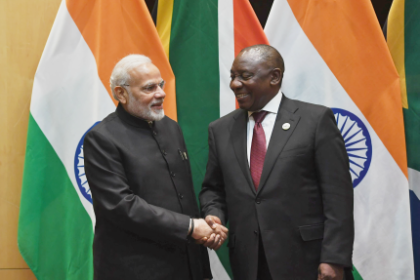 Courtesy: ndtv.com
Courtesy: ndtv.com
President Cyril Ramaphosa’s visit to India helped further strengthen bilateral ties. The presence of a South African president at the Republic Day parade was especially pertinent, as this year is the 150th birth anniversary of Mahatma Gandhi, a common hero to both countries
 Courtesy: Flickr/GovernmentZA
Courtesy: Flickr/GovernmentZA
South African president Cyril Ramaphosa, who is in India this week as the chief guest on Republic Day, and Prime Minister Modi both have elections on their minds, but the considerable diplomatic stakes in the bilateral relationship warrant his visit at this time
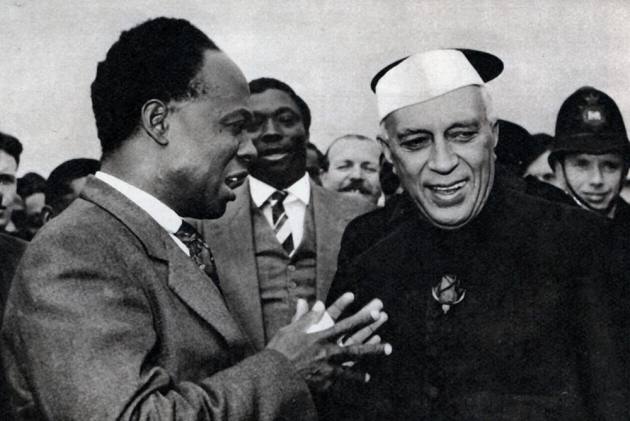 Courtesy: Outlook
Courtesy: Outlook
India’s engagement with Africa is admirable, but its scale has to be widened further
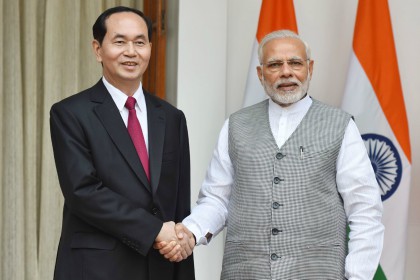 Courtesy: MEA Flickr
Courtesy: MEA Flickr
The following remarks were given by Ambassador Rajiv Bhatia, Distinguished Fellow, Foreign Policy Studies, Gateway House as the chair at a panel discussion on 'Geopolitics in the Indo-Pacific: Implications on Maritime Security for India and Vietnam', organised by the Centre for Indo-Pacific Studies, SIS, Jawaharlal Nehru University on January 22, 2019.
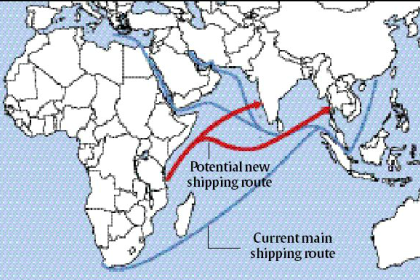 Courtesy: Bharat Shakti
Courtesy: Bharat Shakti
India and Japan, two countries wanting to enhance the quality of their engagement in Africa’s development, have historically taken fundamentally different approaches to the task. But now, both are being guided by geoeconomic imperatives in aligning their strategy in the region— and the Asia Africa Growth Corridor offers many opportunities for synergy at the B2B level
 Courtesy: Gateway House
Courtesy: Gateway House
The infographic illustrates the extensive G2G engagement between India and Japan, which undergirds the strategic partnership.
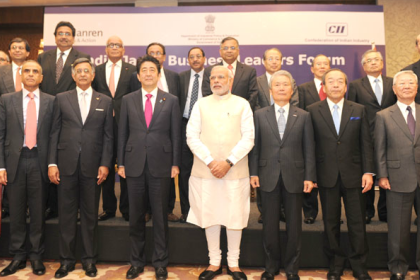 Courtesy: PM India
Courtesy: PM India
The reason for the two countries’ continued good relationship? They share strategic interests and universal values even if they have divergent ways of thinking
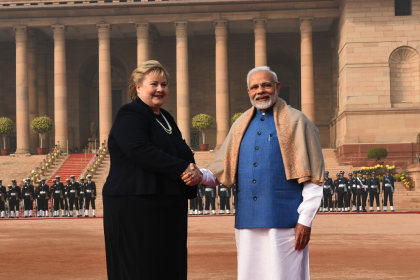 Courtesy: MEA Flickr
Courtesy: MEA Flickr
Norwegian prime minister Erna Solberg’s visit to India earlier this week had a central focus: strengthening economic and technological cooperation in the Blue Economy. This is an area in which her country has considerable expertise and with which Indian business needs to collaborate in managing industries, such as oil, shipping, fisheries and aquaculture in a ‘green’ way